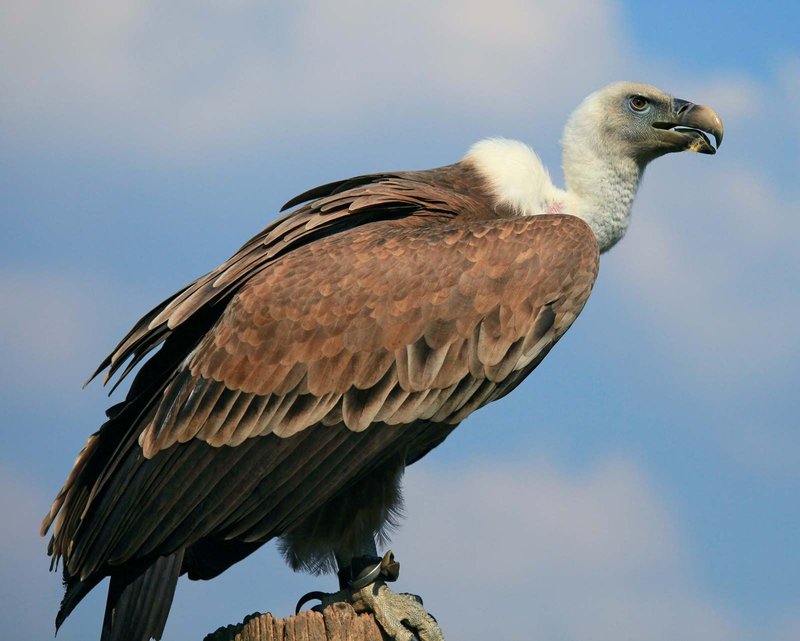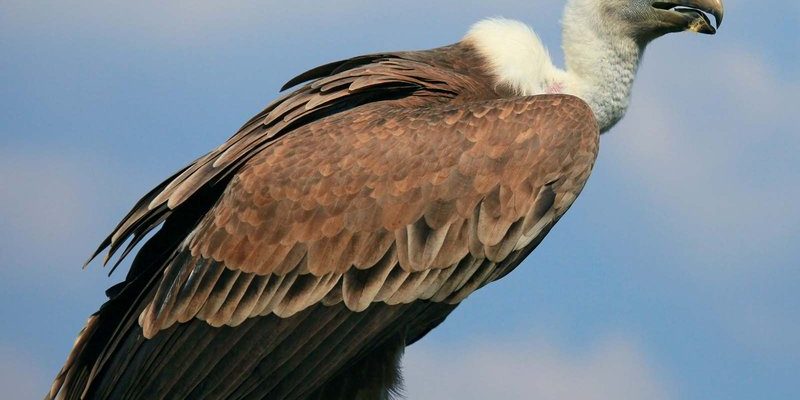
Imagine walking through a dry, sun-baked landscape, where food and water are scarce. It’s hard to picture how any creature could manage in such harsh conditions. Yet, vultures, with their impressive adaptations and behaviors, have figured it out. Let’s dive into the fascinating ways these birds navigate their demanding habitats and continue to thrive.
Adapting to Scarcity
Vultures are masters at surviving on limited resources. One of their key adaptations is their ability to locate food from great distances. With extremely sharp eyesight, they can spot a carcass from up to a mile away. This skill is critical in environments where food sources can be few and far between. While most animals rely on acute senses of smell to find food, vultures have evolved to prioritize sight, making them highly effective scavengers.
Here’s the thing: their diet primarily consists of dead animals. This means they can feed off what others leave behind, allowing them to take advantage of resources that might otherwise go to waste. When other birds are struggling to find fresh food, vultures can feast on the remains of the unfortunate creatures that didn’t survive. You might be wondering, how do they stay healthy while eating carrion? Vultures have unique stomach acids that allow them to digest bacteria-laden food without getting sick.
But it’s not just about finding food. Vultures also have impressive flying abilities. Their long wings and lightweight bodies let them soar effortlessly on thermal updrafts, conserving energy while searching for their next meal. This means they can cover vast areas without exhausting themselves, an essential trait in arid landscapes where resources are spread out.
Water Conservation Techniques
When living in harsh landscapes, water is just as crucial as food. Vultures have some clever ways to cope with water scarcity. For one, they tend to rely on the moisture found in their food. When vultures eat, they can extract enough water from decomposing tissues to stay hydrated. This unique adaptation makes them less dependent on external water sources.
Additionally, vultures have a remarkable ability to withstand high temperatures. They often bask in the sun to regulate their body temperature, which helps them avoid overheating during the hottest parts of the day. You might catch them perching with their wings spread wide, allowing heat to escape and cooling down their bodies. It’s like they have their own built-in air conditioning system!
In extreme cases when water is very scarce, vultures can become less active during the day and wait until temperatures drop in the evening to search for food. They know when to take it easy and conserve their energy, making it easier to survive until conditions improve.
Using Social Behavior to Their Advantage
Vultures are not just solitary scavengers; they often work together in groups. This social behavior plays a significant role in their survival. When vultures spot a potential meal, they call out to others, and soon enough, a group gathers. Having multiple eyes searching for food increases the chances of locating a carcass faster than a lone bird could alone.
Moreover, vultures have a pecking order when it comes to feeding. Larger vultures, like the Andean condor, tend to eat first, while smaller vultures wait their turn. This group dynamic ensures that everyone gets a share of the meal while minimizing potential conflict. Observing this behavior is like watching a well-rehearsed team working in harmony, each bird playing its part to secure their survival.
Another interesting aspect of their social structure is that vultures can often help each other out. If one bird finds a food source, it may return to the group and lead them back to the site, ensuring everyone benefits. This teamwork is a testament to their adaptability and intelligence, key traits that help them thrive in various environments.
Adapting Physically to Harsh Conditions
Vultures have unique physical adaptations that help them survive in extreme conditions. For one, their bald heads are more than just a signature look. This feature serves a practical purpose: it keeps them clean. When they dive into carcasses, their feathers are less likely to get dirty, which is especially important since they often feed in less-than-ideal conditions. A clean head means less risk of disease, which is crucial for their overall health.
Their robust and powerful beaks are designed for tearing through tough skin and muscle. This makes it easier for them to access the nutritious parts of the carcass, maximizing their food intake. Plus, vultures are equipped with strong legs and sharp talons to help them navigate rocky or uneven terrain while searching for food.
Another fascinating adaptation is their low metabolic rate. Vultures can go without food for several days, allowing them to endure longer periods of scarcity. This trait is particularly advantageous during dry seasons when food is hard to find. It wouldn’t be surprising if they were the champions of fasting in the bird world!
Environmental Challenges and Their Resilience
Despite their incredible adaptations, vultures still face significant challenges in their environments. Habitat destruction, poisoning, and hunting threaten their populations worldwide. However, their resilience is evident. Vultures are adaptable birds, capable of shifting their ranges in response to changing environments.
For example, some species have been observed moving closer to urban areas where they can find food more easily. This adaptability speaks to their survival instincts and ability to navigate both natural and human-modified landscapes. You might think of it like a classic story of survival in the wild, where the best adapt and thrive despite the odds.
Moreover, conservation efforts are helping to protect vultures and their habitats. Organizations are working to educate communities about these crucial birds and their role in the ecosystem. By raising awareness, people can appreciate the importance of vultures in keeping our environment clean and healthy.
Vultures are truly remarkable creatures that exemplify the essence of survival in the harshest environments. Their unique adaptations, social structures, and resilience set them apart as some of nature’s most skilled survivors. Honestly, we often overlook these birds and their value in our ecosystems. They play an essential role in recycling nutrients and preventing the spread of disease by cleaning up dead animals.
Next time you see a vulture soaring high above, take a moment to appreciate its journey. They might not be the flashiest birds in the sky, but they are undoubtedly some of the most resourceful. By understanding how vultures thrive against the odds, we can better appreciate the intricate web of life they contribute to. After all, the survival of one species plays a vital role in the balance of the entire ecosystem.

